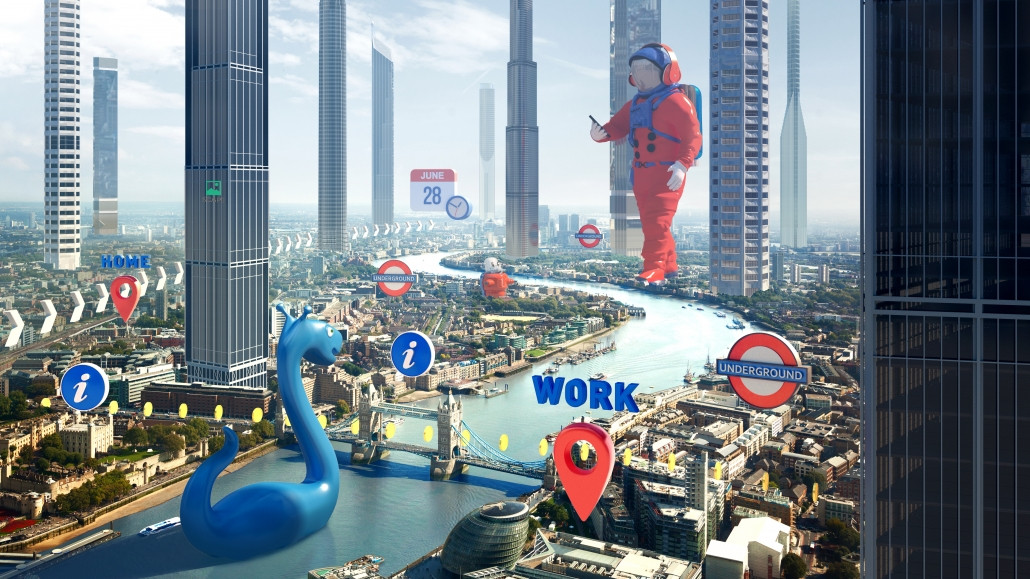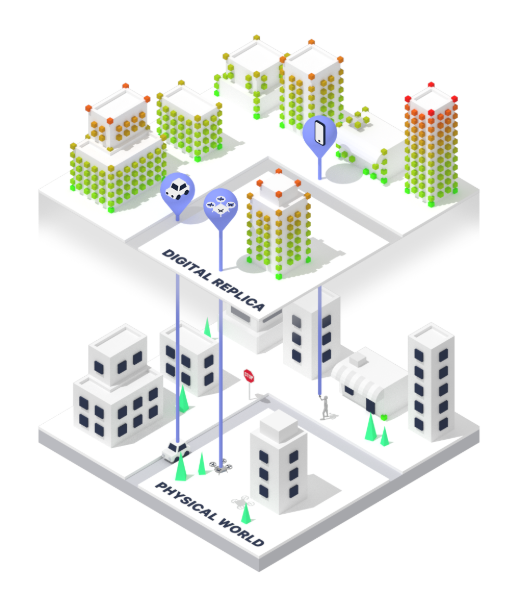UK Startup Scape 3D-Mapping 100 Cities For its AR Cloud Infrastructure
UK startup Scape Technologies is adding 100 cities to its augmented reality Visual Position System which leverages the device camera to automatically determine its location. Initially, the startup started by operationalizing the 3D replicas of London and San Francisco. The startup has now announced that it has collected Visual Position data for one hundred cities and it is planning to roll out even more cities in the coming months.

Scape’s Visual Position Service or VPS is capable of locating devices much more accurately than GPS by using visual cues. The startup says its technology is capable of achieving even a centimeter-accurate localization.
The exciting technology was first previewed early this year. The company is now rolling out its larger plan of covering more cities using its vast and accurate machine-readable 3D maps that will enable city-scale augmented applications.
There are already companies that perform 3D city-mapping but they do it on a much smaller scale such as with mapped individual buildings, landmarks, roads, buildings as well as other limited augmented reality applications. Scape’s value-proposition is that its technology maps entire cities, something no other company is providing at this time.
Scape is now planning to extend its mapping to some 100 other cities by leveraging the data it has collected using cameras with computer vision. Scape’s technology creates a server-side “shared understanding” of the environments which users’ phones can tap into as they are navigating these spaces. The beauty of this data is that it can also support augmented reality overlays thereby creating a digital infrastructure that could in the future support interesting augmented reality applications.

There are also other market players that are currently in the process of delivering the same concept albeit in smaller areas or a on a smaller scale. Scape is therefore differentiating its product by touting its GPS-beating location accuracy, the scale of its mapping as well as the continuous augmented reality content that could be placed by one user and accessed by another to create something of an “AR Cloud”.
This in fact is Scape’s unique value proposition and novelty. The fact that it can create a city scope AR Cloud that would enable users or businesses to create augmented reality objects on the streets that virtually any other user can interact with. It creates a virtual layer, an entire new digital world, over whole cities. A restaurant could for example place augmented reality signs in specific positions which prospective customers can interact with to figure out the location, special offers or the menu on offer. The 3D mapping could also be used by urban planners in overlaying virtual changes over sections of cities so as to realistically visualize how those sections would look were those changes to physically come into effect.
Scape’s machine-readable maps are likely to be popular with augmented reality developers. However, the company is looking beyond this niche user-group and believes its technology could be put into much broader uses in multiple industries ranging from drones to robotics, enterprise uses and various augmented reality applications. It plans to create a map or cloud that both humans and devices can tap into within the same ‘shared understanding’ environment. To further boost the location placement and precision of measurements, Scape is planning to use a combination of Euclidian space coordinates and geo-coordinates.
The Scape technology is based on its self-developed computer-vision engine which analyzes images captured by smartphone camera, identifies the captured environments and then derives the spatial position of the device from the visual data. Scape has described its technology as a Google Street View which has been optimized for machines rather than humans.
Apart from pinpointing the location of electronic devices with a degree of accuracy, the Scape interface also enables augmented reality elements to be permanently anchored in the “AR Cloud” so that they are accessible to all augmented reality users.
Scape has already carried out an early demo of its augmented reality tech with its multiplayer augmented reality game Holoscape which demonstrates the possibilities of the AR Cloud. You can watch a demo of this in the preview video above, where a public square is transformed into a drone-laden combat zone for several players that are equipped with a smartphone. Non-players can continue walking through the combat zone without even noticing or getting themselves immersed into the AR experience.
Scape is not the first company to attempt to create a virtual 3D layer over the real world. The US startup 6D.ai has recently launched an AR could platform using its own set of 3D data which must first be scanned by smartphone users. Pokemon Go also takes a similar approach. Google is also reportedly working on its own AR cloud platform.
https://virtualrealitytimes.com/2019/08/31/uk-startup-scape-3d-mapping-100-cities-for-its-ar-cloud-infrastructure/https://virtualrealitytimes.com/wp-content/uploads/2019/08/Scape-AR-600x337.jpghttps://virtualrealitytimes.com/wp-content/uploads/2019/08/Scape-AR-150x90.jpgAugmented RealityTechnologyUK startup Scape Technologies is adding 100 cities to its augmented reality Visual Position System which leverages the device camera to automatically determine its location. Initially, the startup started by operationalizing the 3D replicas of London and San Francisco. The startup has now announced that it has collected Visual...Sam OchanjiSam Ochanji[email protected]EditorVirtual Reality Times - Metaverse & VR
